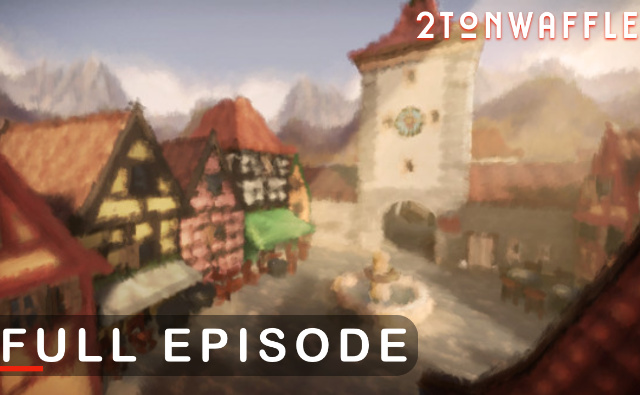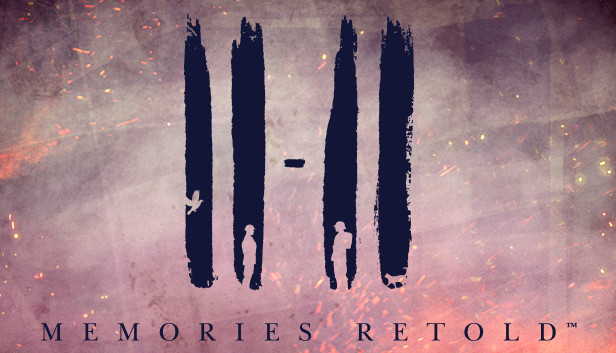11-11: Memories Retold - A Beautiful War Story Marred by Technical Hiccups
Explore the vivid landscape of "11-11 Memories Retold," a narrative game set in WWI. Follow Harry and Kurt, two main characters, as they navigate personal stories and face impactful choices. The unique art style enhances the immersive experience despite some technical issues.

TL;DR
Hey everyone, welcome back to another edition of the First Two Hours! After taking a little vacation break (and dealing with some crazy storms that knocked outdoor furniture all over the place), I'm back with another deep dive into my massive Steam backlog. This week, we're tackling 11-11: Memories Retold, a narrative-driven walking simulator set during World War I that promises to tell a compelling story through the eyes of two different characters.
For those new to this series, here's the deal: I take games from my Steam backlog, play them for exactly two hours, and give you the honest truth about whether they're worth your time and money. No sugar-coating, no corporate nonsense - just a regular gamer's perspective on what works and what doesn't.

First Impressions: An Artistic Vision
Right off the bat, 11-11: Memories Retold hits you with its unique art style. This isn't your typical hyper-realistic war game. Instead, Bandai Namco has gone for something that feels deliberately dreamlike and impressionistic. The visuals have this painted, almost watercolor quality that immediately sets the tone - these aren't crystal-clear memories, they're fragmented recollections of events that happened over a century ago.
The game opens in November 1916, "two years until peace," and introduces us to our two protagonists: Harry, a young Canadian photographer who gets swept up in the romance of war, and Kurt, a German engineer searching for his missing son Max on the battlefield. The parallel storytelling structure works brilliantly here, giving us both sides of the conflict without falling into tired "both sides" narratives.
Gameplay: More Than Just Walking
Let's address the elephant in the room - yes, this is primarily a walking simulator. But calling it "just" a walking simulator sells it short. The game incorporates some clever mechanics that keep you engaged beyond just moving from point A to point B.
As Harry, you're limited to 16 photographs per day, mirroring the real limitations photographers faced during WWI when film was expensive and precious. This constraint adds weight to every shot you take. Do you photograph the recruitment poster to inspire folks back home, or do you capture the gritty reality of trench warfare? These choices matter, and the game tells you upfront that your photographic decisions will influence Harry's principles and how characters like Julia back home perceive him.
The choice system extends beyond photography too. When writing letters home as Kurt to his eight-year-old daughter Lucy, you're faced with difficult decisions: Do you tell her the sanitized version about "Papa going to help brother Max fight the bad guys," or do you lay out the harsh reality that Max is missing and presumed dead? These moments hit hard because they feel genuine - like real decisions a parent might wrestle with during wartime.
Character Development and Storytelling
Where 11-11: Memories Retold truly shines is in its character work. Harry isn't your typical war hero - he's a young man infatuated with a girl named Julia who seems more interested in the dashing Major Barrett than in him. His decision to go to war isn't driven by patriotism or duty, but by a misguided belief that a uniform might make Julia look at him the way she looks at Barrett. It's petty, it's human, and it's absolutely believable.
Kurt's story provides the emotional weight. He's not a soldier - he's a father and engineer who makes the desperate decision to enlist so he can search for his missing son on the battlefield. His letters home to his wife Katrin are heartbreaking, especially when he writes what might be his final letter: "By the time you receive this letter, I may no longer live. If that happens, know that I loved you."
The game does an excellent job of showing how these two characters' paths inevitably converge. When they finally meet during the Battle of Vimy Ridge, it's not as enemies but as two human beings caught in the machinery of war. The moment where Kurt has a gun pointed at Harry, and you have to choose whether to shoot or lower the weapon, carries real emotional weight because you've spent hours understanding both characters' motivations.
Technical Issues: The Elephant in the Trenches
Here's where I have to pump the brakes on my enthusiasm. In my two-hour session, 11-11: Memories Retold crashed twice, completely kicking me back to the desktop. That's not a great look for any game, but it's particularly jarring in a narrative-focused experience where immersion is everything.
The crashes seemed random - once during a simple dialogue scene, another during a more complex sequence with moving parts. Thankfully, the autosave system is pretty generous, so I didn't lose significant progress either time. But having to restart and get back into the headspace of these characters definitely disrupted the flow.
I also encountered some confusing control issues, particularly during Harry's time on the ship to France. There were sequences where camera control was completely disabled, leaving me unable to look around or see what was behind me. A simple tooltip explaining this would have saved a lot of confusion. Instead, I spent several minutes thinking the game had broken before realizing it was an intentional design choice.
The Historical Setting and Authenticity
Credit where it's due - the game nails the World War I setting. From the construction of zeppelins in German factories to the horrific conditions in the trenches at Vimy Ridge, there's clear attention to historical detail. The trenches feel appropriately claustrophobic and miserable, filled with rats and the constant threat of sniper fire. When Harry first arrives and realizes this is "a million miles away from the adventure I expected," it rings true to countless real accounts from the war.
The game also doesn't shy away from war crimes. Major Barrett's execution of a German prisoner is presented without glorification - it's a moment that clearly impacts Harry and shapes his understanding of what war really means. These moments add moral complexity that elevates the narrative beyond simple good-versus-evil storytelling.
Choices That Matter
One of the game's strongest elements is how your choices ripple through the story. The photos you send to Julia affect her perception of Harry. The letters Kurt writes home influence how his family remembers him. When I failed to react quickly enough during the climactic battle sequence, it resulted in a character's death that will presumably impact the rest of the story.
These aren't arbitrary branching paths - they feel like natural consequences of your decisions. The game respects your agency while maintaining narrative coherence, which is harder to pull off than it might seem.
Audio and Atmosphere
The sound design deserves special mention. The ambient audio in the trenches - distant artillery, the scurrying of rats, hushed conversations between soldiers - creates an oppressive atmosphere that words alone couldn't achieve. The voice acting is solid throughout, with each character feeling distinct and authentic to their background and circumstances.
The musical score knows when to be present and when to step back. During quiet character moments, it supports without overwhelming. During battle sequences, it ramps up appropriately without becoming bombastic.
Final Verdict: 3.5/5 Stars
11-11: Memories Retold is a beautifully crafted narrative experience that treats its subject matter with appropriate gravity and respect. The dual-character structure works brilliantly, the choice system feels meaningful, and the historical setting is rendered with obvious care and attention.
However, I can't ignore the technical issues that marred my experience. Two crashes in two hours is simply unacceptable, especially for a game that relies so heavily on maintaining immersion. The control confusion during certain sequences also detracted from what should have been smooth narrative moments.
This is definitely not going to be everyone's cup of tea - if you're looking for action-packed gameplay, look elsewhere. But if you're interested in thoughtful storytelling about war's human cost, and you can tolerate some technical rough edges, 11-11: Memories Retold offers a genuinely moving experience.
Will I play it again? Absolutely. I'm curious to see how different choices affect the story's trajectory, and I want to experience the complete narrative arc. Part two promises to amp up the intensity as both characters face the full horror of battle, and I'm invested enough in Harry and Kurt's stories to see how they conclude.
Recommendation: Worth playing if you enjoy narrative-driven games and can forgive some technical hiccups. Maybe wait for a sale if you're on the fence.
FAQ
- What is "11-11 Memories Retold" about?
- It's a narrative game set in World War I, exploring the lives of two protagonists, Harry and Kurt.
- What roles do the main characters play?
- Harry is a photographer from Canada, while Kurt is an engineer from Germany.
- How is the story presented?
- Through cutting between both characters' perspectives, players make choices that impact the storyline.
- What is notable about the game's art style?
- The game uses a dreamlike, painterly art style to evoke memories and emotions.
- Does the game include combat or action sequences?
- It's more of a narrative experience with some interactive elements and choices rather than traditional combat.
- Are there technical issues in the game?
- Some players have experienced crashes, but these don't detract from the overall storytelling.
- What impact do player choices have?
- Choices can affect the characters' paths, relationships, and story's direction.
- Is replayability a feature in the game?
- Yes, players might want to replay to explore different narrative outcomes from their choices.
- What themes are explored in the game?
- The game delves into themes of war, friendship, family, and personal growth against the backdrop of historical events.
- Would fans of traditional action games enjoy this?
- It's more suited for players interested in story-driven experiences rather than pure action gameplay.





